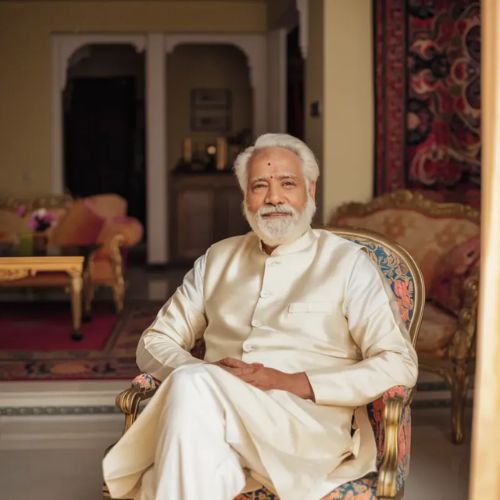“A rapidly aging population” is rarely viewed as a positive statement.
But, it is the reality in many countries. Humans are living longer because of advances in the field of medicine.
While this is good news, an unfortunate reality that grapples most countries is that the quality of life starts diminishing after the age of 60.
Andrew Scott's new book The Longevity Imperative makes a compelling case that humanity must embrace an "evergreen agenda" to transform from simply aging societies into true longevity societies.
So, are we on the cusp of the second longevity revolution?
India's Graying Population

India as a country is going to undergo a massive demographic shift!
While we are currently a young Nation, our elderly population will soar in the next 20 years.
According to the United Nations Population Fund India, the share of Indians over 60 years old is projected to nearly double from 10.5% in 2022 to 20.8% by 2050.
This dramatic graying of the population is viewed as a looming socioeconomic burden.
However, this aging trend represents a remarkable achievement - Indians are living much longer than previous generations.
Data from the World Bank shows India's life expectancy at birth reached 70.8 years as of 2019.
More Indians than ever can expect to live into advanced ages that were once extremely rare.
Andrew Scott and The "Evergreen Society" Imperative
In his book, economist Andrew Scott argues that this longevity revolution offers a huge opportunity - if and when coupled with radical societal reforms.
He strongly advocates for the creation of "evergreen societies" designed from the ground up to support healthier, more productive, engaged lifespans.
Rather than just extending lifespan, Scott says a profound second longevity revolution is needed - one that improves the quality and purpose of those extra years of life.
This may require us to rethink state pensions, education, workplace policies, healthcare, finance, and culture as we know it.
Historically, living to 90 was very rare so we didn't create systems for that.
But now it can be common, so major shifts are needed. This includes a focus on preventative health over just treating disease, and governments investing in anti-aging treatments available to everyone.
There are signs of progress in adjusting to longevity, but much more change is required. Governments are only now starting to see the economic importance of supporting healthy aging populations.
For individuals, the author advises recognizing you'll likely live much longer than previous generations. So think about how to live differently to stay healthy, engaged, and financially secure into old age.
A Challenge and Opportunity for India
For India, transitioning to an evergreen, longevity society mindset represents a tremendous challenge given the lack of existing infrastructure and social norms to support healthy longevity.
But it's also imperative to avoid being crushed under the weight of an unproductive, impoverished aging population.
By making the radical changes needed to help Indians thrive across longer lifespans, the nation can turn a potential crisis into an opportunity for prolonged health, engagement, and prosperity.
The longevity revolution has arrived - India must decide whether to embrace it or be overwhelmed by it.
How do you think India will be able to face these challenges?
And what changes will you make in your personal life to live more healthier lives in your later years? Let us know!






